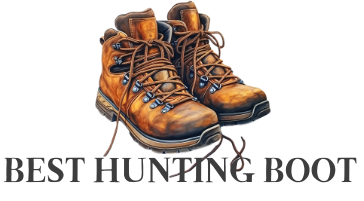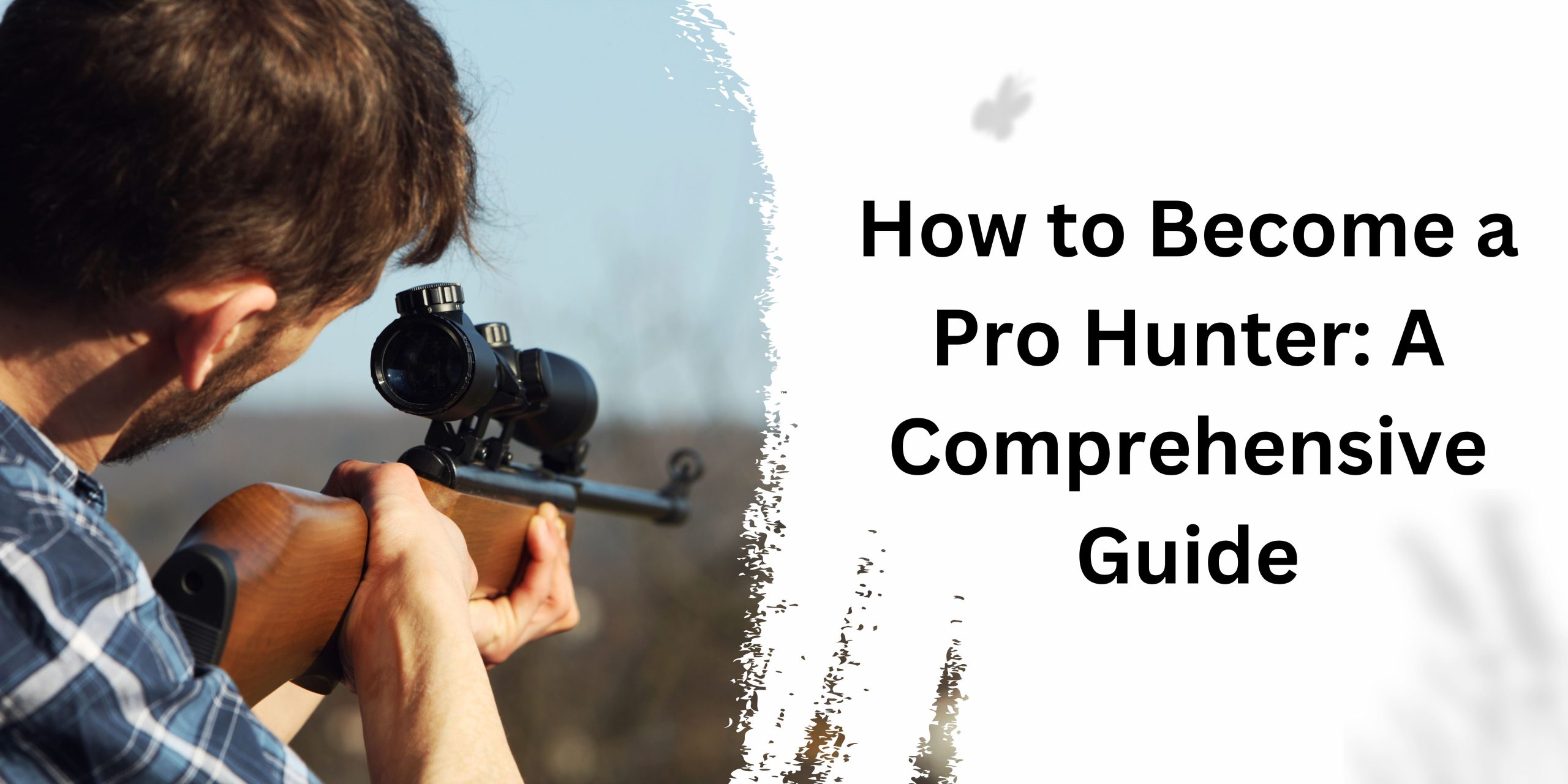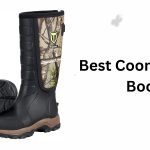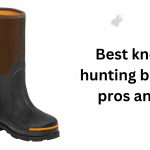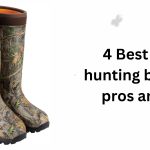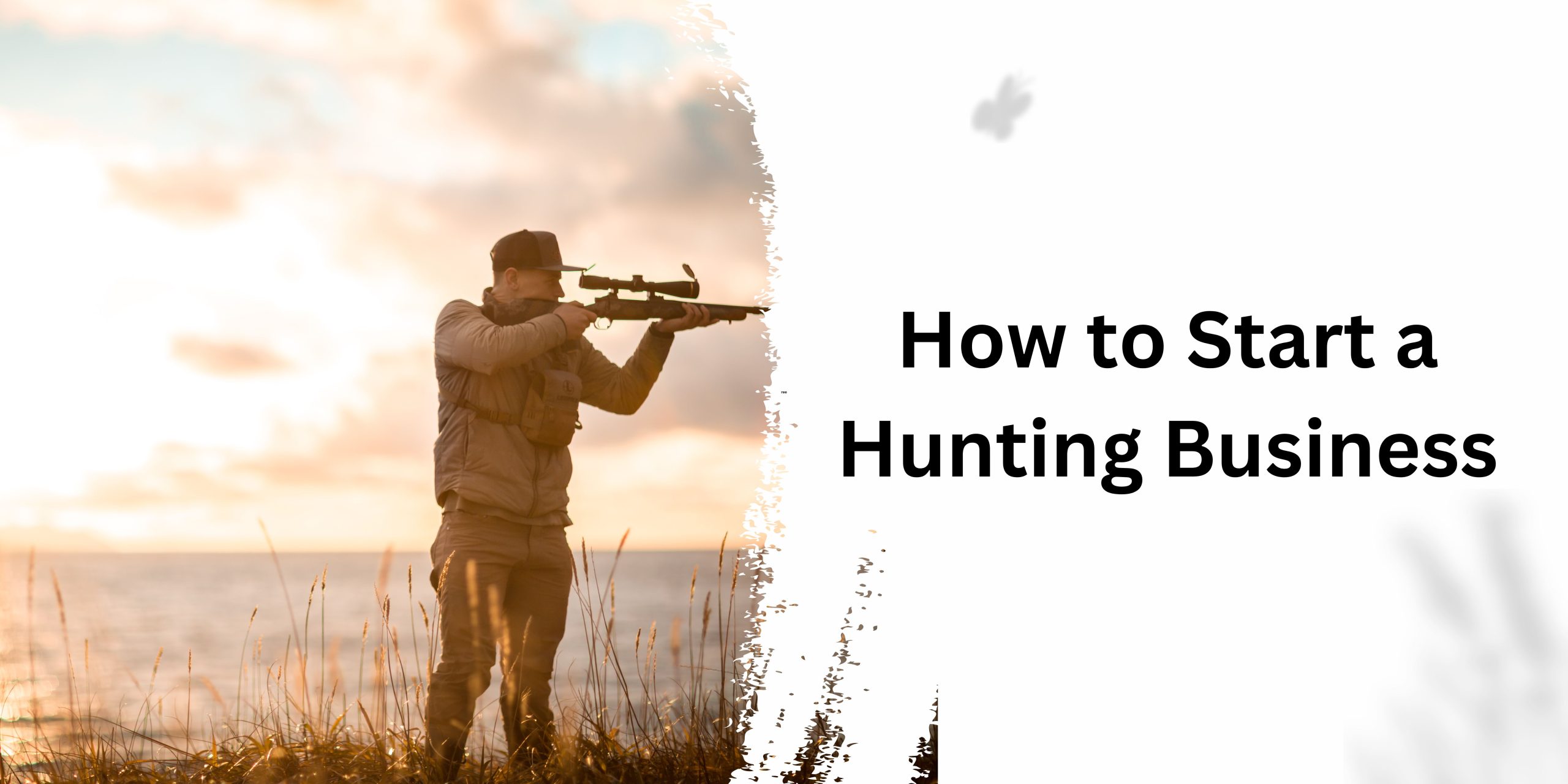Are you dreaming of turning your passion for hunting into a profession? Becoming a professional hunter, or “pro hunter,” is a rewarding but challenging path that requires dedication, skill, and knowledge. In this guide, we’ll explore what it takes to become a pro hunter, from understanding the profession to making money from your skills. Let’s dive in!
What is Professional Hunting?
Professional hunting goes beyond a hobby or pastime. It involves using advanced skills and knowledge to hunt ethically and sustainably while often providing services such as guiding, wildlife management, and education. Pro hunters are often experts in their field, with deep knowledge of wildlife behaviour, hunting techniques, and conservation practices.
How to Become a Pro Hunter
Becoming a professional hunter requires dedication, skill, and a deep understanding of wildlife and conservation. Here is a detailed explanation of the steps you can take to become a pro hunter:
Obtain the Necessary Licenses and Permits:
The first step in becoming a pro hunter is to obtain the necessary licenses and permits. This typically includes a hunting license, which can vary depending on your location and the type of hunting you plan to do. Additionally, you may need permits for specific species or hunting areas.
Develop Your Skills and Knowledge:
To become a successful pro hunter, you’ll need to develop a wide range of skills, including marksmanship, tracking, and wilderness survival. Take hunting courses, workshops, and seminars to improve your skills and knowledge. Spend time practising in the field to hone your abilities.
Gain Experience:
Experience is crucial for becoming a pro hunter. Spend as much time as possible hunting in different environments and conditions to build your experience and confidence. Consider volunteering or working with experienced hunters or outfitters to gain valuable insights and skills.
Build Your Reputation:
Building a reputation as a skilled and ethical hunter is essential in the hunting community. Respect wildlife and follow hunting laws and regulations. Treat every hunt with professionalism and integrity to build trust and credibility among your peers.
Consider Specializing:
Many pro hunters specialize in specific types of hunting, such as bow hunting, big game hunting, or waterfowl hunting. Consider specializing in a niche that aligns with your interests and skills to stand out in the field.
Network:
Networking is important in the hunting industry. Attend hunting conventions, seminars, and trade shows to meet other hunters and professionals. Networking can lead to job opportunities, partnerships, and valuable connections in the industry.
Continue Education:
Stay updated with the latest hunting techniques, equipment, and conservation practices. Continuously educate yourself through books, online resources, and mentorship from experienced hunters.
Start Small:
When starting your career as a pro hunter, consider taking on small hunting jobs or guiding opportunities to gain experience and build your reputation. As you gain more experience and expertise, you can take on more significant challenges and responsibilities.
Seek Certification or Qualifications:
Depending on your location, there may be specific certifications or qualifications required to become a pro hunter. Consider obtaining certifications in wilderness first aid, firearm safety, or wildlife management to enhance your skills and qualifications.
Be Patient and Persistent:
Becoming a pro hunter takes time and perseverance. Be patient with yourself and the process, and stay persistent in pursuing your goals. With dedication and hard work, you can achieve your dream of becoming a professional hunter.
Read More: Is Hunting Land a Good Investment?
How to Make Money as a Professional Hunter?
Making money as a professional hunter involves leveraging your hunting skills, knowledge, and experience in various ways. Here’s a detailed explanation of how you can make money as a professional hunter:
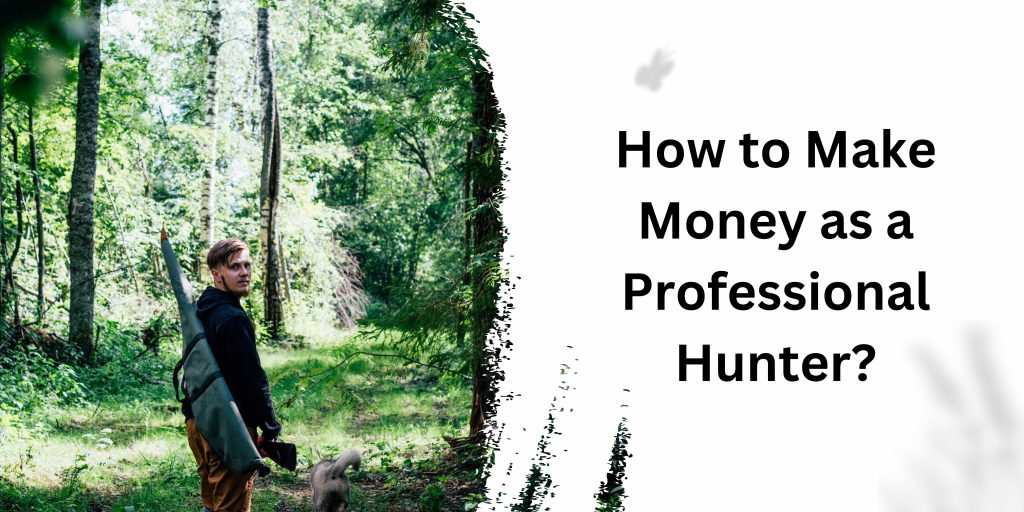
Guiding:
One of the most common ways professional hunters make money is by working as guides for hunting outfitters or private clients. As a guide, you’ll lead hunting expeditions, provide expertise on hunting techniques and wildlife behaviour, and ensure the safety of your clients. Guides are often paid a daily or per-hunt fee, plus tips.
Outfitting:
Professional hunters can also start their outfitting businesses, providing guided hunting trips and services to clients. This can be a lucrative venture, especially if you specialize in a particular type of hunting or target a niche market. Outfitters often charge clients for lodging, meals, equipment rental, and guiding services.
Wildlife Management:
Some professional hunters work in wildlife management, helping to manage and conserve wildlife populations. This can involve working for government agencies, conservation organizations, or private landowners to implement wildlife management plans, conduct population surveys, and monitor wildlife habitats. Wildlife managers can earn salaries or consulting fees for their services.
Education:
Professional hunters can make money by sharing their knowledge and expertise through teaching hunting courses, workshops, or seminars. This can be done independently or through outdoor education programs, hunting schools, or community colleges. Teaching can provide a steady income stream and also help build your reputation in the hunting community.
Consulting:
Experienced professional hunters can offer consulting services to hunting outfitters, landowners, or wildlife management agencies. This can involve providing advice on hunting strategies, habitat management, wildlife population control, and conservation practices. Consulting fees can vary depending on the scope of the project and your level of expertise.
Conservation Work:
Engaging in conservation efforts related to hunting can also be a source of income for professional hunters. This can include working with conservation organizations, participating in habitat restoration projects, or advocating for wildlife conservation policies. Conservation work can be funded through grants, donations, or government contracts.
Product Endorsements:
Professional hunters with a strong personal brand and a large following can earn money through product endorsements. This can include promoting hunting gear, equipment, clothing, or accessories through social media, blogs, or other channels. Product endorsements can provide a steady stream of income and help establish you as a trusted authority in the hunting community.
Read More: How Can You Show Respect for Non-Hunters?
Challenges and Risks in Professional Hunting
Professional hunting is a demanding career that requires a high level of skill, dedication, and resilience. Despite its rewards, it comes with various challenges and risks that hunters must be prepared to face. Understanding these aspects can help prospective pro hunters mitigate dangers and navigate the complexities of the profession.
Weather and Environmental Conditions:
One of the primary challenges in professional hunting is dealing with unpredictable weather and environmental conditions. Hunters must be prepared for sudden changes in weather, such as rain, snow, extreme heat, or cold, which can affect visibility, mobility, and safety. Navigating through dense forests, steep mountains, swamps, or deserts can be physically demanding and hazardous, requiring endurance, strength, and careful planning.
Physical and Mental Demands:
The physical and mental demands of hunting are significant. Long hours of walking, carrying heavy gear, and enduring harsh conditions can be physically exhausting. Additionally, hunters need to stay focused and patient for extended periods, which can be mentally taxing. Wildlife behaviour also presents a challenge, as animals can be unpredictable and sometimes dangerous. Understanding animal behaviour is crucial to avoid potentially harmful encounters, and the elusive game often develops keen survival instincts, making them difficult to track and hunt.
Equipment Reliability:
Equipment reliability is another concern for professional hunters. Hunting equipment, such as firearms, bows, and navigation devices, can malfunction or break, potentially leading to dangerous situations. Regular maintenance and knowledge of quick repairs are essential to keep equipment in working condition. Furthermore, regulatory compliance adds to the complexity, as obtaining and maintaining the necessary licenses and permits can be complex and time-consuming. Hunters must stay informed about changing laws and regulations to avoid legal issues and fines.
Ethical Considerations:
Ethical considerations are integral to professional hunting. Maintaining ethical hunting practices and adhering to fair chase principles is essential for the sustainability of wildlife populations. Ethical hunting practices help maintain a positive image of hunters and mitigate negative perceptions.
Potential Risks:
Professional hunting also comes with various risks. Physical injuries, such as slips, trips, and falls, are common in rough terrain. Carrying firearms and sharp tools increases the risk of injury, and encounters with large or aggressive animals can result in serious harm. Health hazards, such as prolonged exposure to extreme weather conditions, can lead to hypothermia, heat stroke, or frostbite. Hunters are also at risk of vector-borne diseases transmitted by ticks, mosquitoes, and other vectors, such as Lyme disease or West Nile virus.
Isolation:
Isolation is another risk, as hunting often takes place in remote areas with limited access to medical facilities or communication networks. Extended periods alone in the wilderness can lead to feelings of isolation and stress. Equipment failures, such as faulty GPS devices or inadequate maps, can lead to getting lost, which is life-threatening. Weapon malfunctions can cause accidents or leave hunters unarmed in dangerous situations.
Legal Risks:
Legal risks are also prevalent, with accidental trespassing on private property potentially resulting in legal action. Unintentional violations of hunting laws can lead to serious legal consequences, including fines and loss of hunting privileges.
Safety Precautions and First Aid
Safety Precautions
- Pre-Hunt Planning:
- Inform Others: Always inform someone about your hunting plans, including your location, expected duration, and contact information. This ensures that someone knows your whereabouts and can alert authorities if you don’t return on time.
- Weather Check: Monitor weather forecasts before heading out. Be prepared for sudden changes in weather and plan your hunt accordingly to avoid being caught in dangerous conditions.
- Proper Gear and Equipment:
- Wear Appropriate Clothing: Dress in layers to adjust to changing temperatures. Use moisture-wicking and insulating materials to stay dry and warm. Camouflage clothing helps blend into the environment, while blaze orange gear ensures visibility to other hunters.
- Protective Gear: Always wear safety glasses and ear protection when using firearms. Consider using gloves, hats, and sturdy boots to protect against the elements and rough terrain.
- Firearm Safety:
- Handle with Care: Treat every firearm as if it is loaded. Always point the muzzle in a safe direction and keep your finger off the trigger until ready to shoot.
- Safe Storage: Store firearms unloaded and locked in a secure case when not in use. Ensure ammunition is stored separately to prevent accidental discharge.
- Navigation and Communication:
- Carry Reliable Tools: Use GPS devices, maps, and compasses to navigate. Ensure all devices are in good working condition and have backup batteries.
- Communication Devices: Carry a cell phone, satellite phone, or two-way radio for emergency communication. Inform your contacts of your plans and check in regularly.
- Hunting Ethically:
- Know the Regulations: Adhere to local hunting laws and regulations, including season dates, bag limits, and prohibited areas.
- Respect Wildlife: Practice ethical hunting by ensuring clean, quick kills to minimize animal suffering. Follow the principles of fair chase.
First Aid Preparedness
- First Aid Kit:
- Comprehensive Kit: Carry a well-stocked first aid kit, including bandages, antiseptic wipes, gauze pads, adhesive tape, scissors, tweezers, pain relievers, and any personal medications. Ensure your kit is easily accessible and regularly check it for expired items.
- Trauma Supplies: Include trauma-specific supplies such as tourniquets, pressure dressings, and clotting agents for managing severe bleeding.
- Basic First Aid Skills:
- Wound Care: Know how to clean and dress wounds to prevent infection. Apply pressure to stop bleeding and use antiseptics to disinfect.
- CPR and AED: Get certified in CPR and the use of Automated External Defibrillators (AEDs). These skills can be lifesaving in case of cardiac emergencies.
- Splinting and Immobilization: Learn how to splint fractures and immobilize injured limbs to prevent further damage.
- Emergency Situations:
- Hypothermia and Hyperthermia: Recognize the signs of hypothermia (shivering, confusion, slurred speech) and hyperthermia (excessive sweating, dizziness, nausea). Know how to treat these conditions promptly by warming or cooling the affected person.
- Bites and Stings: Be prepared to treat insect bites, stings, and snake bites. Carry antihistamines and know how to use a snake bite kit if applicable to your area.
- Emergency Evacuation:
- Plan Ahead: Identify the nearest medical facilities and emergency services before your hunt. Know the quickest routes to these locations.
- Signal for Help: Carry signaling devices such as whistles, flares, and signal mirrors to attract attention in case of an emergency. Use these tools to communicate your location to rescuers.
Summary
Becoming a pro hunter is a challenging but rewarding journey that requires dedication, skill, and a deep respect for nature. By obtaining the necessary licenses and permits, developing your skills and knowledge, gaining experience, building your reputation, and considering specialization, you can work towards achieving your dream of becoming a professional hunter.
